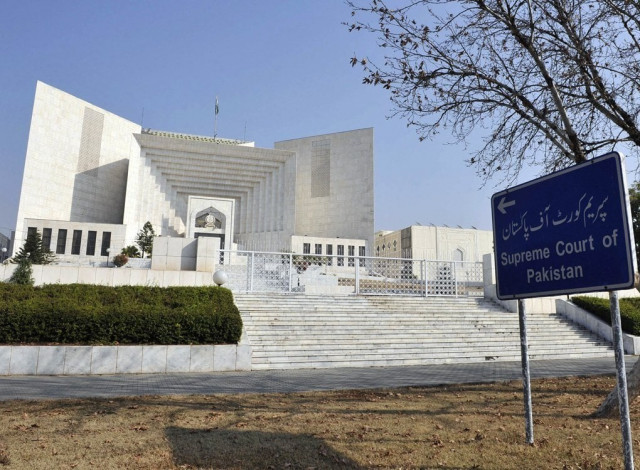SC tells Imran’s lawyer to explain NAO amendments
CJ notes tax can be exempted on account of amnesty schemes but question about source of properties will remain

Supreme Court Justice Syed Mansoor Ali Shah has observed that all arguments against recent amendments to the National Accountability Ordinance (NAO) 2000 are based on speculation and asked the lawyer for former prime minister Imran Khan to explain as how these recent changes are violative of the fundamental rights.
Chief Justice of Pakistan Umar Ata Bandial also gave a similar observation, while presiding over a special bench. However sitting on the bench, Justice Ijazul Ahsan wondered how the confession of guilt would be wiped out after these amendments.
He agreed that ultimately economy would suffer in case of non-recovery of amounts through plea bargains. Justice Ahsan again raised questions about the fate of those cases, which are below Rs500 million worth and returned from the accountability courts.
Khawaja Haris, counsel for the petitioner, resumed arguments, saying that there would be no conviction after these amendments. He also tried to prove that how recent amendments would wipe out Rs42 billion fake accounts case wherein former president Asif Ali Zardari was an accused.
It is to be noted that in 2019, the Supreme Court had referred that matter to the National Accountability Bureau (NAB) for initiating proceeding against the accused persons. Justice Ahsan, who, is part of this bench, had authored that judgment.
Interestingly, the judge also asked the counsel about the status of the accounts of rikshay vala and falooday valas. The chief justice noted that tax could be exempted on account of amnesty schemes but question regarding source of properties would still exist.
During his arguments, the counsel stated that definition of offence based on assets beyond means had been changed. So now, apart from proving accused’s owns assets beyond means, the prosecution also had to prove the excess assets were derived by the accused through corruption and corrupt practices.
He said that the explanation 2 to section 9(a)(v) now excludes all those amounts that were withdrawn by the accused from account prior to the initiation of inquiry. So, by way of illustration, source of Rs16.5 billion in account of four could not now be probed as it could not be considered as an asset owned by accused, having already been withdrawn prior to date of inquiry.
Likewise, he stated that cash withdrawals could not be considered as an asset of the accused. According to the counsel , the source or beneficiary of Rs7.17 billion and Rs7.899 billion in JIT report could not be probed as these were cash withdrawals (or in one case bank transfers without acquisition of any asset in return), hence excluded from being treated as assets.
Similarly transactions relating to Rs4.85 billion could not be probed as these too could not be treated as assets because of last portion if the section 4(2)(a) because this amount had been declared in amnesty scheme by Anwer Majeed and other family members (Omni Group).
Further hearing of the case will be held on Tuesday (today).



















COMMENTS
Comments are moderated and generally will be posted if they are on-topic and not abusive.
For more information, please see our Comments FAQ